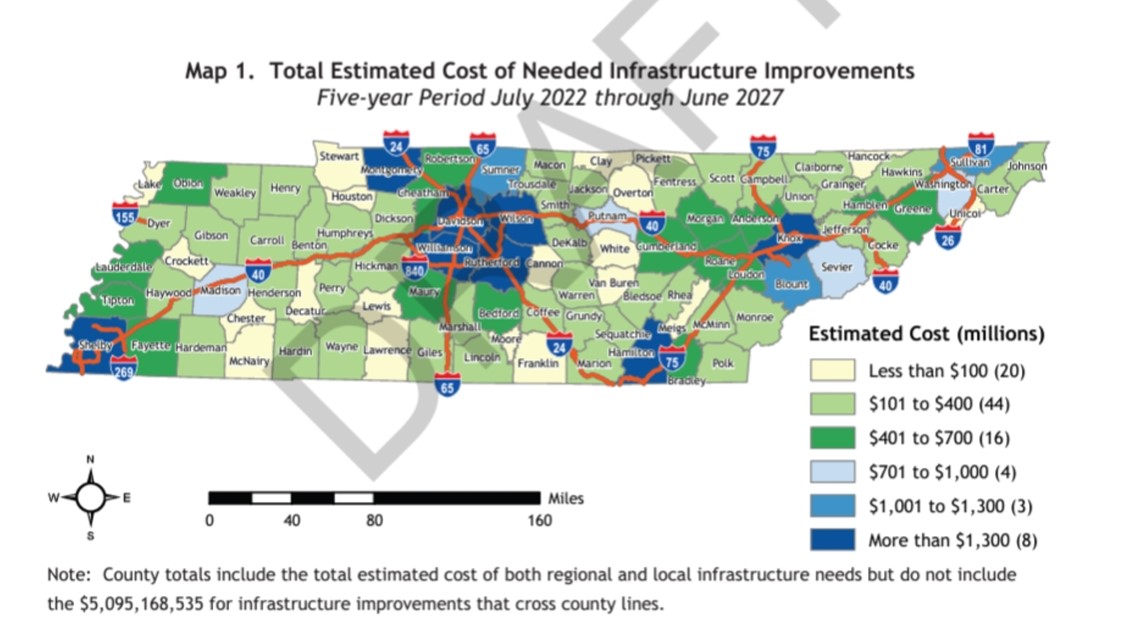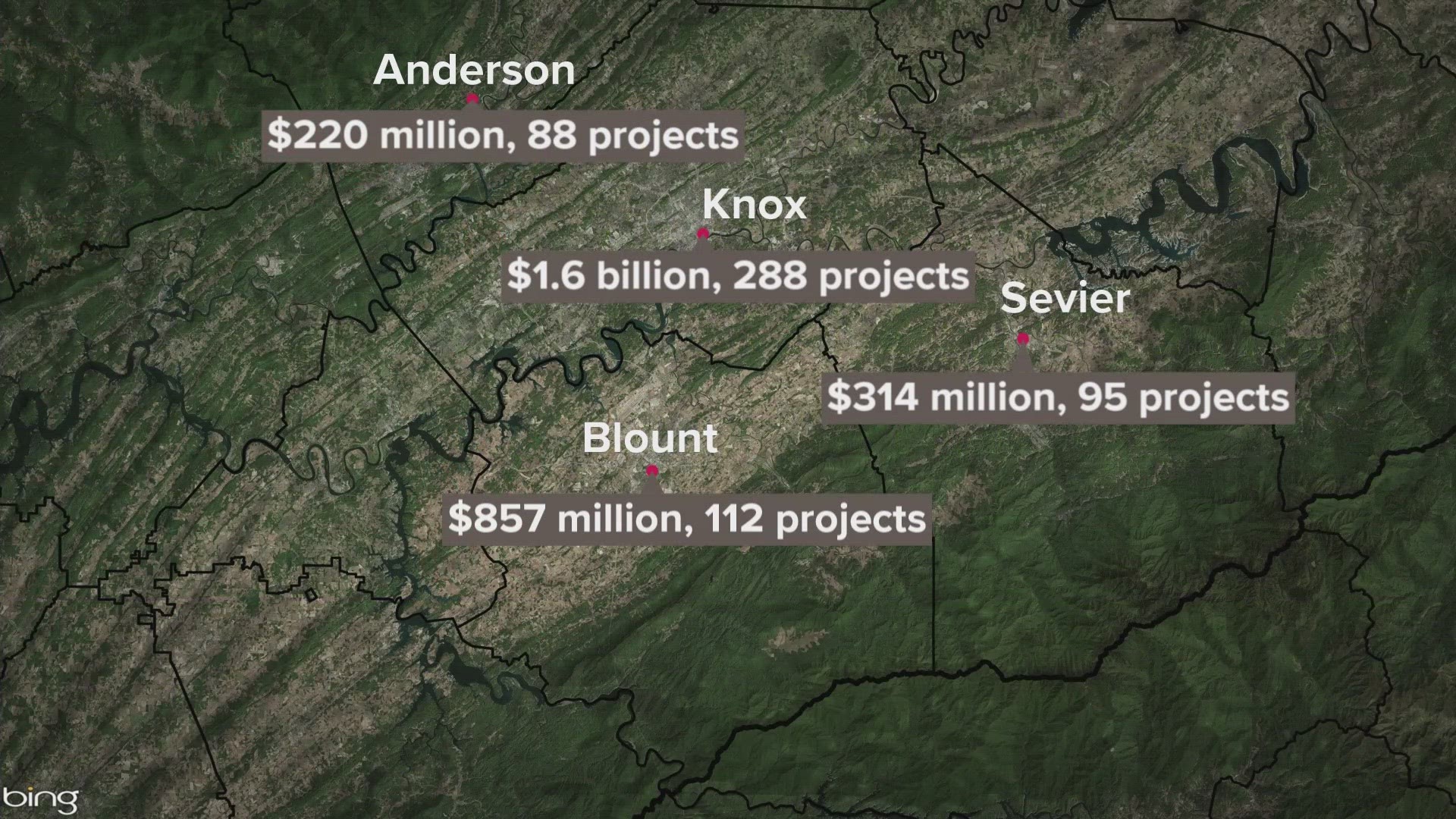NASHVILLE, Tenn. — It could take around $68 billion for all of Tennessee's infrastructure needs to be met. Those include internet needs, wastewater needs, education needs and recreation needs. More than half of that cost would go towards meeting transportation and utilities needs, according to a report by the Tennessee Advisory Commission on Intergovernmental Relations.
On Thursday, the commission met and discussed some of the state's most pressing infrastructure needs. In a report titled "Building Tennessee's Tomorrow," the second-most-expensive infrastructure need included post-secondary education costing around $6.8 billion and the third most was water and wastewater infrastructure, costing around $6.3 billion.
Transportation and utilities infrastructure needs totaled around $34.7 billion, according to the report.
"In general, it has been the case throughout the history of this inventory that the more people living in a county and the more that population grows, the more infrastructure the county will need. However, relative to their populations, counties with small populations need just as much or more infrastructure than counties with large populations," the report said.
The report said transportation needs actually decreased slightly compared to the previous year but was still the category with the highest cost. However the cost of projects to add gas lines, electrical cables, broadband infrastructure and more increased.
Broadband needs especially increased, totaling around $32 million in July 2022 as opposed to around $8 million in July 2021. The increase was driven by a $24 million project to install broadband infrastructure in Roane County.
"Broadband needs in the inventory include only projects owned by government entities. As a result, the inventory doesn’t fully capture the need for expanded access to broadband in many communities because broadband deployment in many areas relies less on municipal utilities," the report said.


While transportation and utility infrastructure accounted for half of the state's needs, the largest increases were seen in the education and "health, safety and welfare" categories. Education needs increased by 13% from July 2021 to July 2022, and health, safety and welfare needs increased by 22.4%.
"Over half of this increase — $1 billion — is needed for water and wastewater infrastructure improvements, including new projects and increases in the cost of existing projects," the report said.
Four water-related projects across the state cost at least $30 million. One of them includes a $50 million water treatment plant in Pigeon Forge and another includes $40 million in Kingsport sewer upgrades. However, one project was a main driver in the cost increase — a water project in the Nashville area that increased by around $506 million.
"That project, a water project including a river water quality update, corrective action, improvements, and upgrades to the sewer system in Nashville, is related to a consent decree enforced by the U.S. Environmental Protection Agency," the report said.
Law enforcement, public health facilities, and fire protection infrastructure also reported needs totaling $866 million, around $50 million more than the last year. Law enforcement needs increased by around $495 million, mostly driven by two projects: a new emergency operations center for the Tennessee Emergency Management Agency in Nashville, and a jail and justice center expansion in Morristown.
"Needs for new public health facilities include a client services building in Middle Tennessee for the Tennessee Department of Intellectual and Developmental Disabilities ($73 million) and a $54 million facility to replace the Western Mental Health Institute in Bolivar. The largest cost increase for fire protection is a $75 million project to build four new fire stations in Nashville ($27 million increase)," the report said.
Infrastructure needs for higher education also saw a large increase totaling around $1 billion. Much of that increase was driven by projects at the University of Tennessee at Knoxville to expand the College of Business, costing $227 million, as well as a project to replace a chemistry building, costing around $151 million. Renovation costs for Neyland Stadium were included in the report, representing an increase of around $108 million.
Knox County reported around $4.5 billion in total infrastructure needs, mostly in the post-secondary education category. Transportation needs totaled around $1.6 billion.

